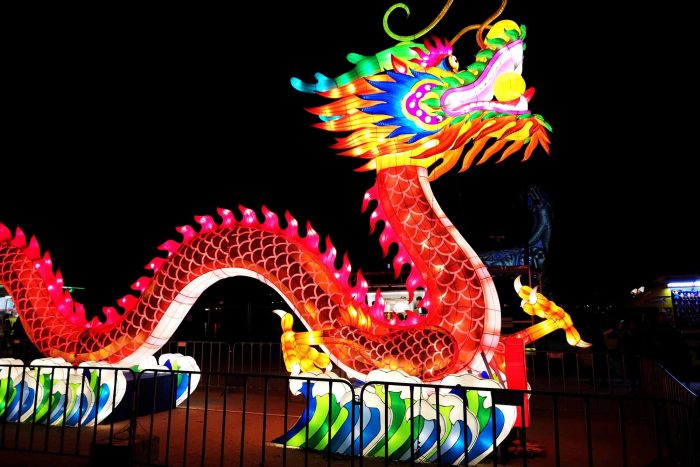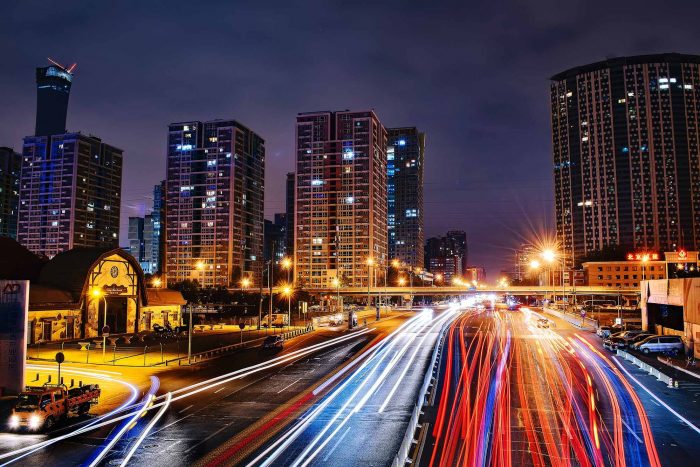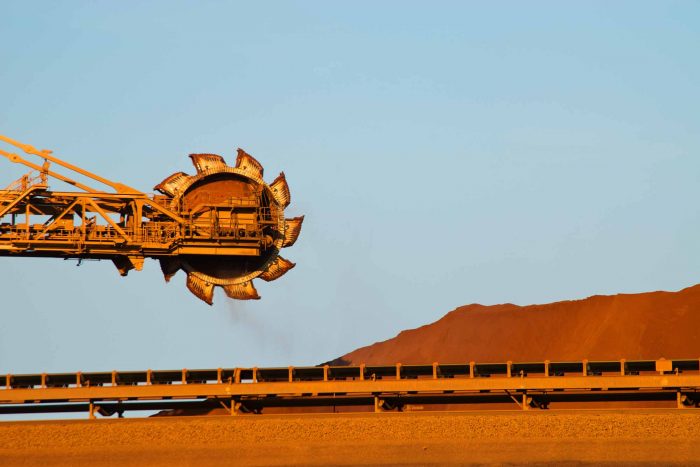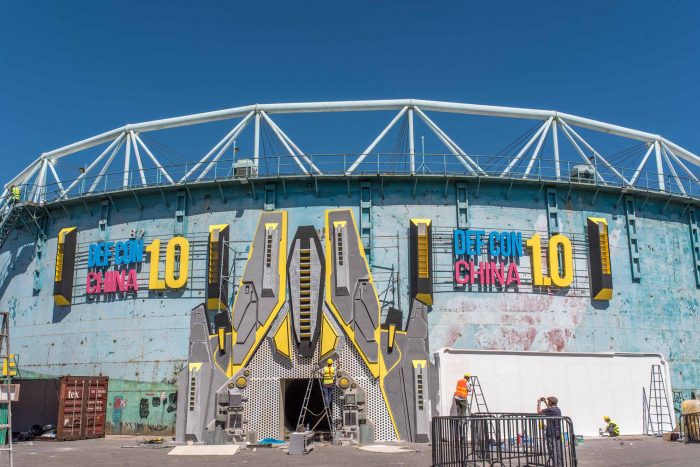Drawing a red line at an extradition treaty
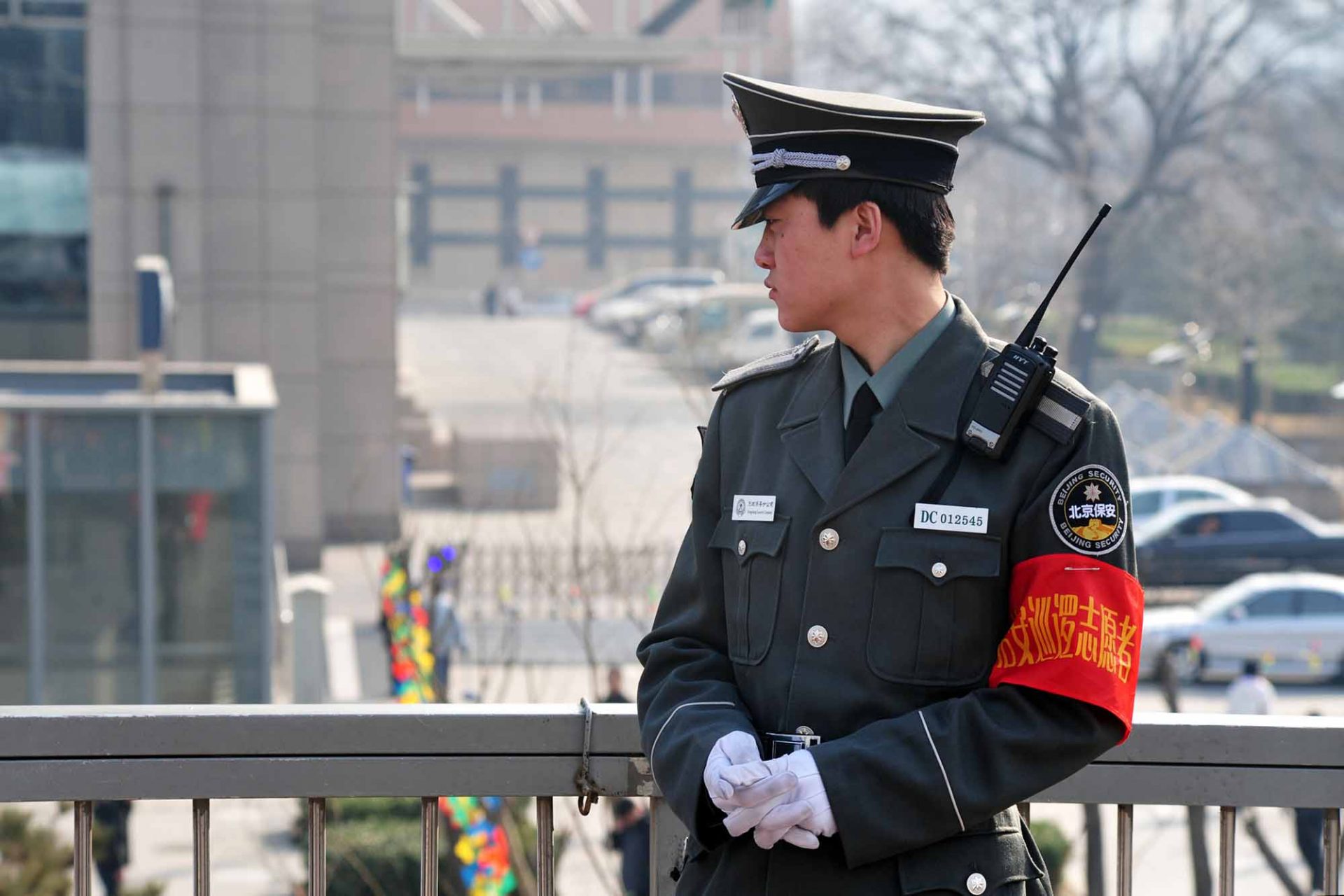
The extradition bill that has sparked months of ongoing protest in Hong Kong should serve as a wake-up call for Australia and other western states who have signed extradition agreements with the People’s Republic of China (PRC). Beijing’s ‘One Country Two Systems’ encroach has put on show its limitless ‘legal’ drive, its abusive ‘legal’ system, its overwhelming control over the ‘negotiating’ party, and most pressing its blatant disregard for agreements.
In the context of Australia’s new reality of bounded engagement, this makes it imperative to confidently draw lines of non-engagement with China in the area of criminal exchange.
For more than ten years, law enforcement cooperation has existed alongside political, diplomatic, and economic engagement as a priority for the bilateral relationship. But the partnership long predates this, with the AFP’s first liaison office in China set-up back in the late 1990s. Australia is said to have one of the strongest police-to-police relationships with China of any Western democracy.
According to a recent ASPI report, cooperation has largely centred around counter-narcotics, due to China’s role as a major drug production and transit hub of Australian methamphetamines. Established in 2015, Taskforce Blaze remains the only joint partnership Chinese authorities have with any foreign agency. Due to its success it has now entered phase four of operations. Former Australian Federal Police Commissioner Andrew Colvin expressed confidence that the taskforce is a “role model for law enforcement and mutual legal assistance, proving that even with different social and judicial systems Australia and China can work together effectively.”
Despite a slightly static uptake over 2018’s diplomatic freeze, Australia has also committed to an annual High Level Security Dialogue, entered into an MOU on anti-corruption law enforcement cooperation, and renewed the existing Joint Agency Arrangement on Economic Crime Cooperation. Two formal bilateral treaties are also in force and the third Treaty on Extradition still awaits ratification.
Australia is in a bind on cooperation
Australia is not new to extradition, nor is it new to cooperating with countries that exercise coercive legal practice. It has active extradition arrangements with many countries: Australia has extradited to, but not from 13 nations; Australia has extradited from 18 nations, but not to; and there are 10 nations where extradition has operated in both directions. Australia has brought home marginally more people at 117 than it has sent away at 103.
An extradition treaty is designed to function at four levels: legal, political, diplomatic, and economic. In cases of one-way extradition, the balance is maintained by enhanced economic and diplomatic exchange for the non-extraditing nation. Despite the legal underpinnings of the treaty, the Australian government has defined the standards under which it conducts extradition “as a matter of policy… outside the legal sphere.”
Australia is obliged to uphold fundamental rule of law principles and human rights standards in its policies and actions domestically and abroad under seven key international human rights treaties.
It can legally clear itself of any wrongdoing by seeking diplomatic assurances from the receiving state that an extradited person will be treated according to its conditions, but historically these have not prevented ill-treatment from taking place.
China is very eager to garner global support for its anti-corruption campaign Operation Fox Hunt. This aims to repatriate corrupt officials who have fled overseas – most of whom were former state officials – and recover proceeds of crime.
Of the 100 fugitives the PRC is hunting, the majority are said to be in the US, UK, Canada, Australia, and New Zealand. Not one of these states has an extradition treaty with China. Initially, ten people were believed to be in Australia. Six now remain.
While this agenda supports the argument that assurances would be honoured, the PRC’s long record of breaching international obligations cannot be ignored. A person extradited to China with an undertaking against capital punishment may be executed or sentenced to death at a later date on a different charge.
In China, the use of the death penalty is classified as state secret. Chinese state control over the media makes it almost impossible to follow the outcome of any person on trial. One state newspaper reported that none of the at least 67 high-ranking corrupt officials caught in the anti-corruption drive had been sentenced to death. One man was sentenced to death for intentional homicide and bribery, and several others received death sentences for economic crimes with a two-year reprieve.
Although China remains the world’s leading executioner, its preferred tactic to bridge the connection between ‘what we say’ and ‘what we do’ is to make subjects – both legally and illegally detained – simply vanish. Once a person inside China is conveniently ‘lost’ to the authorities they are at the mercy of extra-legal procedures.
Unlike Australia, which has an independent judiciary, the government is responsible for law enforcement in China. It maintains control over who is to be arrested, what is to be reported, which cases are to be heard by a judge, how the prosecution will proceed, and the limits of action by the defence.
President Xi Jinping’s commitment to implement rule of law, and counter crime at a global level, has facilitated the introduction of widespread legislation that makes it easier for the government to better hunt corrupt fugitives overseas and arbitrarily detain people at home.
The CCP has an intricate system of formal and informal incentive structures that influence criminal proceedings at each level of government. China’s 98-99 per cent conviction rate is telling.
The pressures of political competition not only compel law enforcement agencies to take a hard line, but more dangerously it incentivises them to cheat and fabricate cases for the sake of quick quota turn-arounds. Legal advice goes “if he has not confessed… fix it”.
The Chinese judiciary will not exclude evidence obtained through torture unless the defendant can prove it took place. Given lawyers face abuse, imprisonment, and loss of legal licence for raising allegations of torture in their client’s defence, combined with the fact that the police act as perpetrator and witness and can therefore refute any statements made claiming ill-treatment, cases are rarely put forward.
Criminal cooperation has become transactional diplomacy
Another difficulty is the inability to monitor the treatment of people once they enter the Chinese justice system. Western governments have a demonstrated tendency to opt for non-intervention in these cases for fear of diplomatic and economic displacement. So much so that law enforcement cooperation has become transactional.
Allegations earlier this year that the Australian Consulate helped Crown Casino secure a succession of Chinese “high-rollers” from a cohort of organized criminals and CCP figures evidenced Australia’s politicised, money-minded crime and justice exchange.
Australia is locking itself into a foreign policy that trades fugitives to keep its economy – and diplomatic relationship – on track. It has already subordinated its position on human rights to economic interests.
Although the Australian Government has become increasingly more vocal on China’s human rights and procedural abuses, it has moved slowly. And this has largely been in response to pressure from human rights groups and the public. It is not to say that Australia has been diplomatically inactive in this space, but rather that publicly they have regularly refrained from exerting pressure.
Given China deals in power transactions, Australia’s publicly subdued stance raises serious concerns about its ability to uphold integrity when negotiating criminal matters.
The Australian Government has a duty to protect Australia from becoming a sanctuary for criminals. But these attempts to preserve the integrity of the law are undermined by cooperating so freely with a country with no rule of law.
There are instances where it is impossible and impractical not to deal with Chinese law enforcement. Short of drugs, all areas flagged for cooperation – fraud and corruption, counterterrorism, and cyber espionage – fit into China’s broad definition of state security.
Given Xi’s anti-corruption drive serves primarily as a mechanism to reel in political loose ends, Australia cannot participate in the return of economic fugitives. A high proportion of these cases have been found to be fabricated.
Engagement in counterterrorism awards a gold stamp of approval to China’s repressive regime in Xinjiang that is premised on curbing “the three evil forces of separatism, extremism and terrorism”.
Cyber cooperation is equally problematic given the alleged Chinese state involvement in high profile cases such as the hacking of the Bureau of Meteorology, the Australian National University and possibly the Australian Parliament. These frameworks are not for Australia to be endorsing through joint participation.
Deportation vs extradition
So far the PRC has recovered more than 50 of its 100 most wanted. The China Daily reported the return of 1,300 economic fugitives in 2017 alone, 347 of whom were corrupt officials. Only eight were extradited.
In the absence of formal treaties these have either been through kidnapping and forced repatriation, ‘persuasion’ (convincing the fugitives to ‘voluntarily’ return to the PRC by using their family or friends as leverage), or through cooperation with foreign governments to have them formally ‘deported’ directly or indirectly back to the PRC.
Deportation is the more formal means of ‘disguised extradition’. Australia has a very active history of deporting Chinese people back to the PRC. Just recently a Chinese citizen and 13-year permanent Australian resident was set to be deported to China on account of an illegitimate red notice – which has since been removed – issued by the CCP in 2014. Despite the four-year uptake on the case, the Australian Department of Home Affairs claimed he “posed an unacceptable risk to the Australian community” on the basis of a character test.
Unlike extradition, where the decision to extradite rests on the legal case of the PRC, the decision to deport is based on an investigation under Australian law. This makes Australia’s attempt to deport even more problematic as it failed to recognise false charges.
The Department was adamant that were the alleged suspect to be returned to China, he would be guaranteed a fair trial. Given the hit rate of conviction and hordes of cases indicating otherwise, this is unacceptably ill-informed.
Australia’s current deportation laws have a real ‘grey area’ around where Australia’s responsibility to people deported starts and ends (unlike extradition where there is an obligation, albeit limited capacity, to continue to oversee criminal investigations once the person has left Australia), but ultimately the outcome of any person of interest returned to China is signed, sealed, but most importantly delivered by Australia’s decision to deport.
Another legal loophole for return of persons is Australia’s border force. In 2017-18 alone, Australia rejected 90 per cent of all Chinese citizens’ onshore claims for asylum. Sending people back to China with no apparent concern over the outcomes suggests Australia does not fully understand the nature of China’s political legal system.
Judicial principles should not be for sale
It is time that Australia practices what it preaches – and what it is bound to by international law. Collectively, Western nations need to stop taking Beijing’s shilling and start conducting reciprocity in exchange. For Australia this means using its voice and articulating its values. The PRC’s abuse of international standards has not dissuaded nations from engagement; it has simply encouraged them to engage covertly. Australia is no exception.
Secondly, Australia needs to remove economic and diplomatic motivations from crime and justice negotiations with China. It creates greater economic dependence, warps the legal outcomes, and drastically reduces Australia’s negotiating capacity in the greater China space. The commercial interests of Australia do not justify the slightest leniency towards law enforcement cooperation with the PRC. An extradition treaty is not the mechanism to demonstrate goodwill, placate taut political relations or bolster economic engagement.
Thirdly, Australia needs to clarify how deportation is used to return people to China. If Australia developed a system that enabled the preliminary oversight of deportation and the cross-jurisdictional responsibility of extradition, it would be in a far better position. Yet the problem is that neither of these alter PRC conduct. Given China’s ungraded criminal justice system, border management needs to feature in Australia’s crime cooperation policy.
Finally, Australia needs to cease advocating for ratification of an extradition treaty. It cannot possibly pursue the agreement while simultaneously maintaining its obligations under international law. Although extradition presents some opportunity for increased cooperation, it opens the door to far greater illegitimacy and procedural abuse.
Whether or not there is a formal agreement in place, China will manage the return of its most wanted. Formality has had little bearing on the illegitimate, extrajudicial and extraterritorial procedures and outcomes of China’s legal system both domestically and abroad.
Australia needs to be much more selective and principled in crime and justice cooperation with China. While there is scope for limited engagement, it is critical Australia start to implement some hard red lines. It is not for Australia to gift China a veneer of legitimacy to operate outside of the law.




